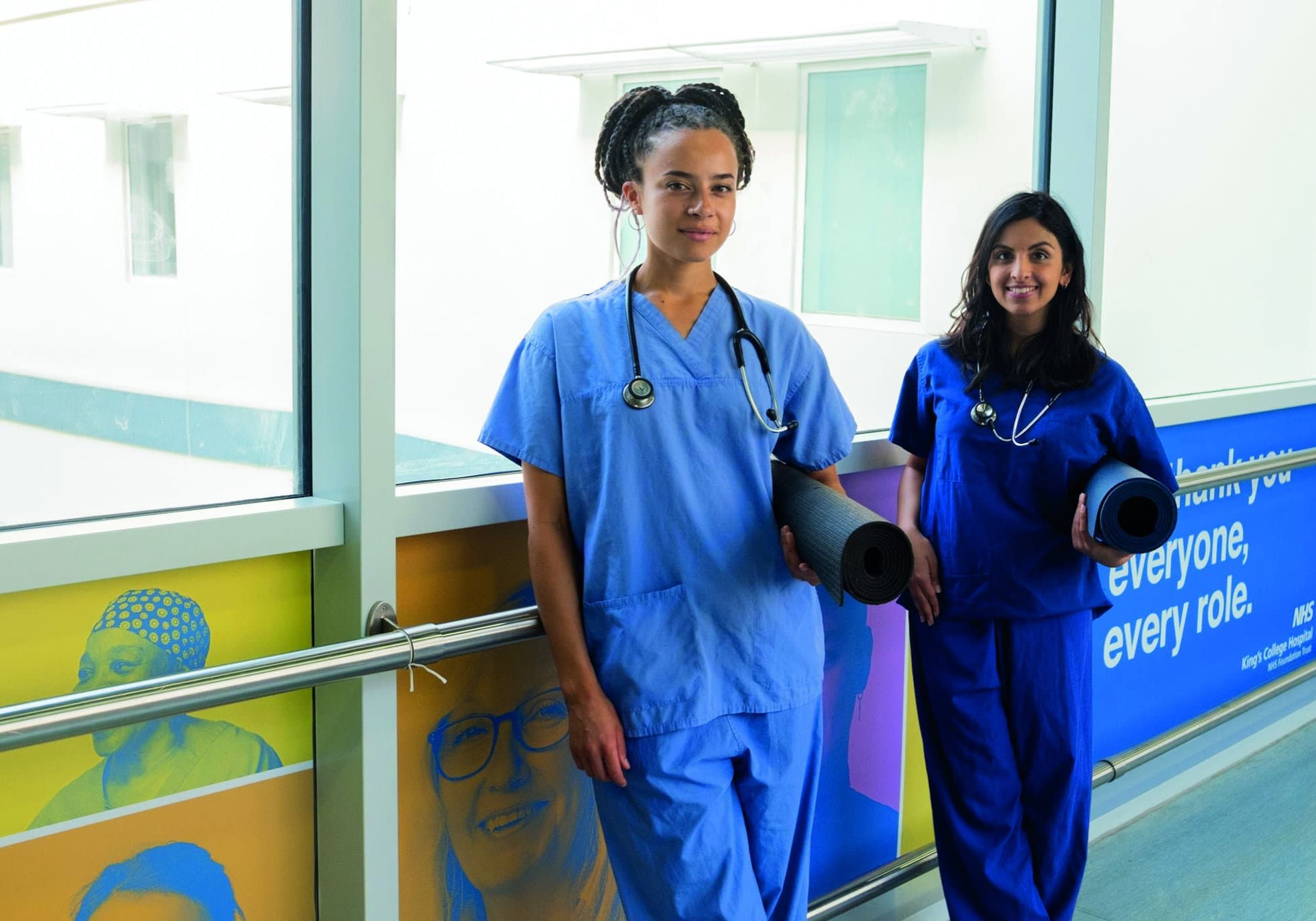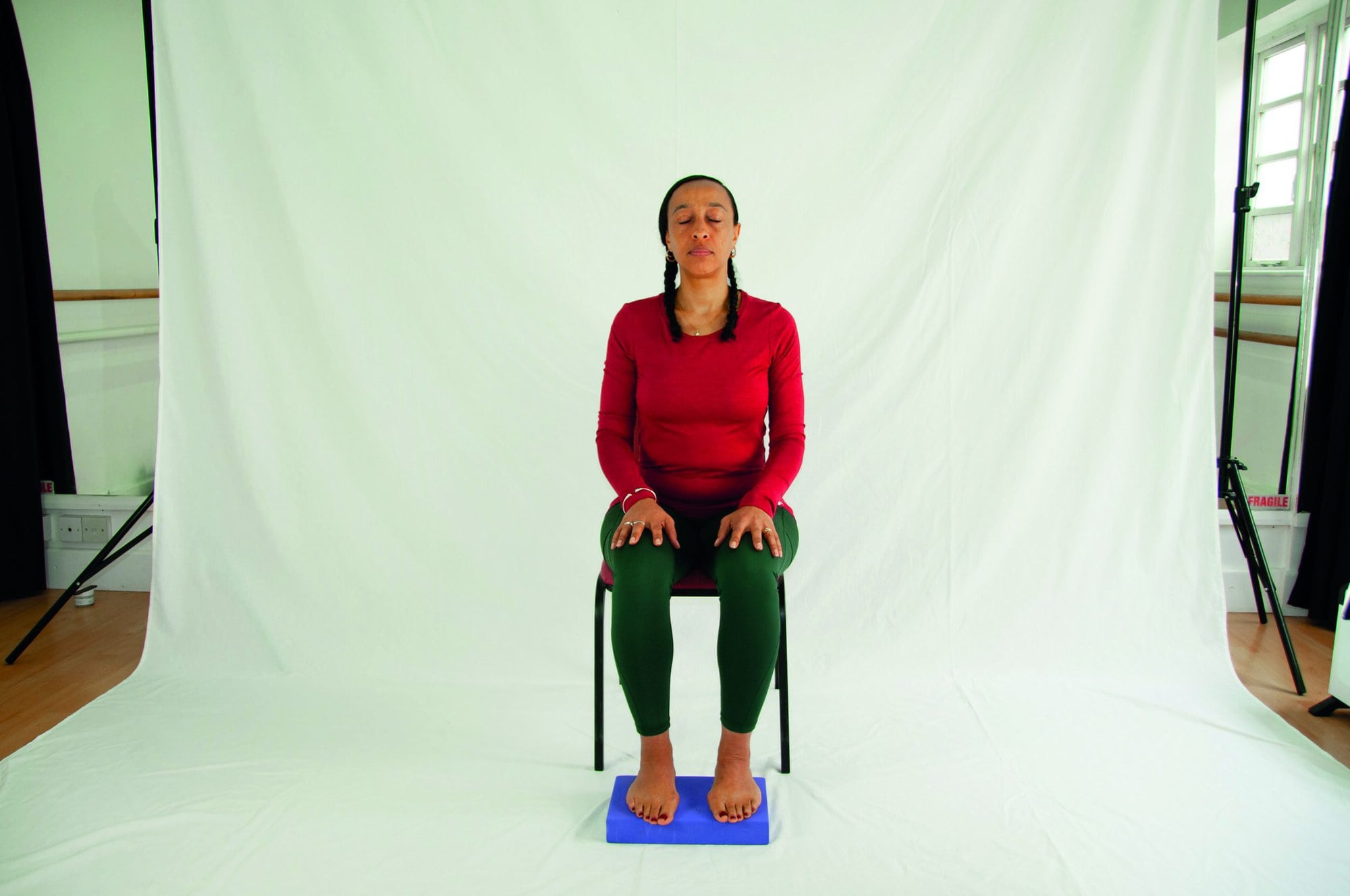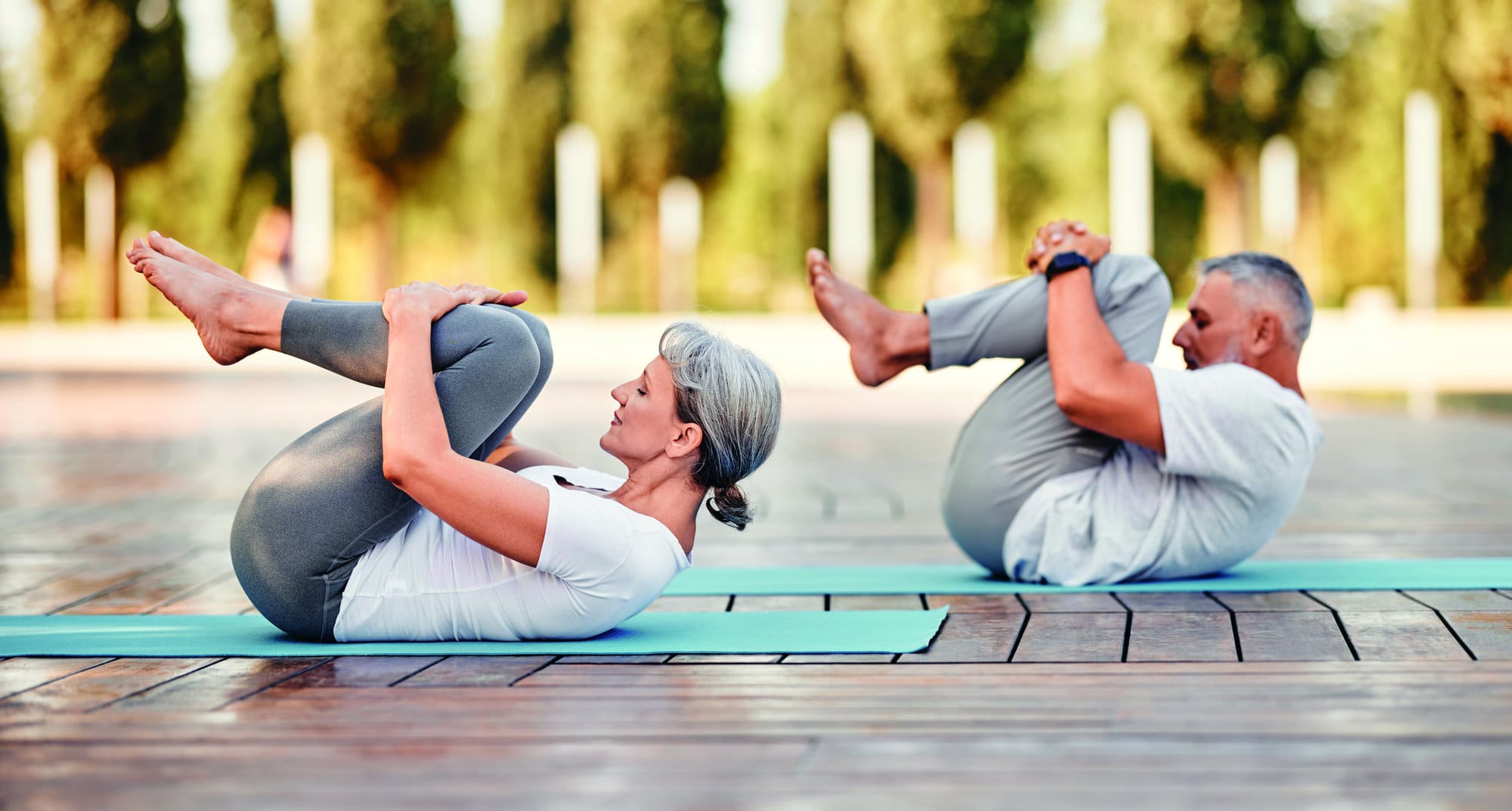
INTEGRATING YOGA INTO HEALTHCARE
How the Yoga In Healthcare Alliance charity is helping yoga teachers to work with health professionals for the benefit of patients and the NHS. By Paul Fox
Hatha Yoga is a fantastic way to support health, and it does so through its potent mix of postures, breathing practices, mindfulness, and meditation. We now know from well over 300 randomised control trials that yoga also promotes whole mind-body health through autonomic regulation, improved heart rate variability, a strengthened immune system, and better brain chemistry.
Health and wellness is supported at multiple levels to improve overall human functionality, as we see from the model below created by leading yoga researcher and Assistant Professor of Medicine at Harvard Medical School, Sat Bir Singh Khalsa. (Illustration taken from the book ‘Yoga on Prescription’ by Paul Fox and Heather Mason)
This close link to health and wellbeing doesn’t always sit comfortably alongside yoga’s official position in the UK as being part of sport and fitness via Sport England and similar bodies in Scotland, Wales and Northern Ireland.
If we delve into the yoga tradition, we see that yoga practice evolved from being a singular pathway to spiritual awakening on ashrams under the guidance of a guru, to being offered more widely for its mental and physical health benefits. Indeed, Elliott Goldberg’s excellent book, The Path of Modern Yoga, traces the first expression of the modern yoga class to a house on Versova Beach in Mumbai on Christmas Day 1918. The Indian pioneer, Shri Yogendra, had abandoned his ashram with the mission to offer yoga techniques to middle-class Indians and their families consisting of postures, breathing techniques and relaxation methods aimed at promoting good health and stress relief.
Shri Yogendra’s declaration that yoga must be stripped of its “mysticism and inertia” to make it accessible to millions of people, not just a few dedicated disciples, demonstrates a truth about the yoga tradition. It has always evolved and adapted to meet the needs of people in every age.
Taking inspiration from this, Heather Mason founded the Yoga In Healthcare Alliance (YIHA) in 2016 with a mission to integrate yoga into healthcare and provide a viable pathway for yoga teachers wishing to teach NHS patients. YIHA is a UK-registered charity, with over 400 teachers delivering its Yoga4Health 10- week social prescribing protocol (covered in last month’s issue of OM). We train experienced yoga teachers to deliver Yoga4Health, which is a prevention/early intervention programme aimed at patients at risk of becoming chronically ill.

APPROACHING THE NHS
Despite the substantial evidence-base for yoga, many healthcare professionals have remained reluctant to recommend yoga to their patients and it’s easy to see why. We have such a wonderfully broad range of approaches and styles of yoga – everything from the gymnastic to chair based mindfulness and meditation classes – that there is no predictable standard for the yoga experience. We assume students will find the right class and teacher for them.
Doctors can’t be expected to have detailed knowledge about all the yoga classes available in their area and are therefore not going to recommend yoga which may or may not meet the needs of their patients. For this reason, Heather Mason initiated deep and detailed discussions with NHS leaders about what a yoga programme suitable for NHS patients might look like, while remaining true to the essence of yoga and its values based on the Yamas and Niyamas. The NHS required the following:

• A standardised evidence-based protocol with proven positive outcomes for patients.
• A secular programme that would be accessible to people of every religion or none.
• A programme that was accessible, inclusive and would help to address health inequalities.
This means only speaking about evidence-based benefits of yoga, not things we might read about in yoga books that are not well founded. It means avoiding the use of Sanskrit or other language that might exclude people and steering away from terms like prana and chakras (remember this is a programme mostly attended by beginners).
Practices are taught in a chair or on a yoga mat, and we make the programmes affordable and reach out to marginalised communities and those who might not otherwise consider yoga. Even though Yoga4Health is a standardised protocol, there is still plenty of leeway for our teachers to express themselves and meet the needs of each cohort of service users.
The West London NHS Clinical Commissioning Group gave YIHA a substantial grant to develop and deliver the Yoga4Health social prescribing programme. After piloting it on NHS staff and seeking expert advice on all aspects of our approach and content, the programme was delivered to 279 patients in West London. Westminster University conducted a detailed evaluation of the programme, collecting data from participants on Week 1 and Week 10 of the programme and three months afterwards. They have published two academic papers on their findings, including this overall conclusion:
“Patient reported outcome data demonstrated significant improvements from baseline to post-intervention on all outcome measures, which were sustained three months after the Yoga4Health programme.”
Patients had lower stress, improved mood, felt more socially connected, were more physically active and felt more in control of their health.
WHAT DOES THIS MEAN FOR YOGA IN HEALTHCARE?
YIHA has paved the way for yoga to become an accepted social prescribing pathway in the NHS. The Yoga4Health programme is now accredited by the Royal College of GPs via the Personalised Care Institute. Many yoga teachers already work in healthcare through relationships they have built up over many years and we celebrate that. Our charitable purpose is to support the integration of yoga into healthcare broadly, not just via our own programme.
To support yoga teachers more widely, YIHA works closely with the College of Medicine and Integrated Health on initiatives like creating a professional code for yoga teachers wishing to work in healthcare. We also promote yoga more widely through the All-Party Parliamentary Group on Yoga in Society, for which YIHA is the Secretariat.
By helping NHS patients look after their own health and wellbeing, together we can make a big difference to them and to the sustainability of healthcare systems.
Paul Fox is a former Chair of the British Wheel of Yoga and current Chief Operating Officer of the Yoga In Healthcare Alliance (yogainhealthcarealliance.com). He has co-written the book Yoga on Prescription with Heather Mason and previously authored Yoga Quest.




